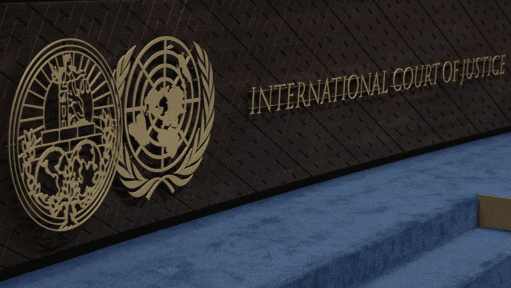
International Court of Justice Orders Israel to Ensure Urgent Aid Reaches People of Gaza
Repeated warnings from the UN have underscored imminent threat of a "man-made famine" in Gaza
The International Court of Justice, the world's foremost legal body, has issued a directive to Israel to ensure that essential food supplies and urgent humanitarian aid reach the people of Gaza promptly.
The court's order, issued on Thursday, highlights the alarming onset of famine in the region following nearly six months of conflict. Repeated warnings from the United Nations have underscored the imminent threat of a "man-made famine" in Gaza, attributing the dire situation to
Israel's restrictions on aid, which have resulted in alarming levels of hunger and deprivation. According to the Hague-based UN court, the situation has escalated beyond a mere risk of famine; famine conditions are already prevalent among Palestinians in Gaza. The court has urged Israel to take immediate and effective measures to facilitate the provision of urgently needed basic services and humanitarian assistance.
Following attacks by Hamas on October 7, Israel imposed a comprehensive siege on Gaza, severely limiting access to food, water, and medicine. Although some aid deliveries have since been permitted, humanitarian organisations assert that the sporadic influx of aid trucks falls significantly short of meeting the region's needs.
The UN's human rights chief has even suggested that Israeli restrictions may constitute the use of starvation as a weapon of war. The desperation gripping Gaza was tragically illustrated this week when individuals vying for food aid drowned or were trampled to death as aid parcels were dropped into the sea by parachute.
Matthew Hollingworth, the Palestine director of the World Food Programme, emphasised the severity of the situation, stating, "Nowhere else in the world do so many people face imminent famine."
Access to clean water is also severely limited, forcing Gazans to embark on long journeys in search of water sources that may have already dried up. Maram Abu Amra lamented the daily struggle, saying, "We have to queue for everything... Sometimes, we return empty-handed, without water."
Despite calls for an "immediate ceasefire" by the UN Security Council, heavy fighting and relentless bombardments persist, resulting in further loss of life and destruction of infrastructure. The conflict has transformed much of Gaza into a wasteland and crippled the healthcare system.
Amid the turmoil, allegations have arisen regarding Israeli military actions targeting hospitals, with accusations of militants using medical facilities as cover. Israel has defended its actions, citing the need to combat terrorist infrastructure.
The conflict, which began with an attack by Hamas on October 7, has claimed thousands of lives on both sides and taken a heavy toll on civilian populations.
Efforts to broker a truce have faced significant challenges, with mediators striving to prevent the escalation of violence into a wider regional conflict. The involvement of key players such as the United States, Egypt, and Qatar reflects the international community's efforts to find a peaceful resolution.
In light of the ongoing crisis, discussions have also turned to the governance of Gaza in the post-war period, with considerations for the role of the Palestinian Authority in the region.
The situation remains highly volatile, with the people of Gaza enduring unimaginable hardships amidst the ongoing conflict and humanitarian crisis.
For any enquiries or information, contact ask@tlr.ae or call us on +971 52 644 3004. Follow The Law Reporters on WhatsApp Channels.